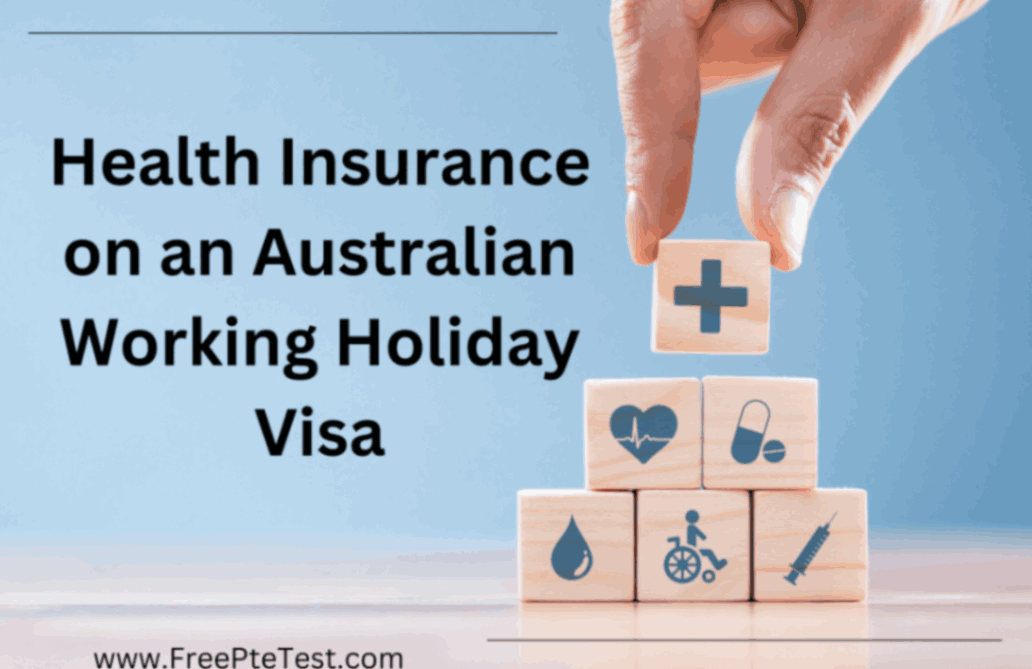Australian Working Holiday Visa: Embarking on a working holiday adventure to Australia is an exciting prospect, offering the opportunity to explore a new culture, meet people from around the world, and gain valuable work experience.
However, amidst the thrill of planning your trip, it’s crucial not to overlook a vital aspect of your journey – health insurance. In this comprehensive guide, we will delve into the intricacies of health insurance for those on an Australian Working Holiday Visa, ensuring you are well-prepared for any unexpected medical expenses.
Understanding the Australian Healthcare System: Australia boasts a robust healthcare system, and it’s essential to familiarize yourself with its key components. The country’s healthcare is a mix of public and private services, with the public system, known as Medicare, providing essential medical services. While Medicare covers Australian citizens and permanent residents, those on a working holiday visa are not automatically entitled to its benefits.
Importance of Health Insurance: Given the absence of Medicare coverage for working holidaymakers, obtaining health insurance becomes imperative. Health insurance provides financial protection in the event of illness or injury, ensuring that you can access quality healthcare without bearing the full financial burden. Without adequate coverage, medical expenses can quickly escalate, potentially leading to a significant financial strain.
Types of Health Insurance: When it comes to health insurance for Australian working holiday visa holders, there are two main options to consider: Overseas Visitors Health Cover (OVHC) and travel insurance.
Overseas Visitors Health Cover (OVHC): OVHC is specifically designed for temporary visitors to Australia, including those on a working holiday visa. It covers a range of medical services, including hospital stays, emergency room visits, and some outpatient services. OVHC policies are offered by various insurance providers, each with its own coverage options and pricing.
It’s crucial to carefully compare OVHC policies to find one that aligns with your needs. Consider factors such as coverage limits, waiting periods, and whether extras like dental and optical services are included. Some well-known insurance providers offering OVHC include Bupa, Medibank, and Allianz Global Assistance.
Travel Insurance: While OVHC focuses on healthcare within Australia, travel insurance provides coverage for various travel-related risks, including trip cancellations, lost luggage, and emergency medical expenses. When selecting travel insurance, ensure that it includes comprehensive medical coverage for the duration of your stay in Australia.
Comparing Quotes and Policies:
To make an informed decision, it’s essential to compare quotes and policies from different insurance providers. Consider the following factors:
a. Coverage Limits: Check the maximum benefit limits for hospital and outpatient services.
b. Waiting Periods: Be aware of any waiting periods for specific treatments or services.
c. Extras: Assess whether the policy includes extras such as dental, optical, or physiotherapy services.
d. Cost: Compare the overall cost of the policy, taking into account your budget and coverage needs.
e. Customer Reviews: Research customer reviews to gauge the satisfaction and reliability of the insurance provider.
Navigating the Application Process: Once you’ve chosen a suitable health insurance policy, the next step is to navigate the application process. Most insurance providers offer an online application system, making it convenient for travelers to secure coverage before arriving in Australia. During the application, you’ll typically need to provide personal details, visa information, and payment details.
Understanding Waiting Periods: It’s crucial to be aware of waiting periods associated with your chosen health insurance policy. Waiting periods are the time between when you purchase the policy and when you can claim certain benefits. While waiting periods can vary among insurance providers, common waiting periods include:
a. 12 months for pre-existing conditions.
b. 2 months for psychiatric care, rehabilitation, and palliative care.
c. 2 months for obstetrics-related services.
Planning for the Unforeseen: While it’s impossible to predict every aspect of your working holiday experience, planning for the unforeseen is a responsible and prudent approach. In addition to securing health insurance, consider the following tips:
- Familiarize Yourself with Local Medical Facilities: Identify nearby hospitals, clinics, and pharmacies in the areas you plan to visit.
- Emergency Contacts: Save emergency contact numbers, including the Australian emergency services number (000), in your phone.
- Carry Important Documents: Keep a copy of your health insurance policy, passport, and visa information in a secure location.
- Stay Informed: Stay informed about any changes to healthcare policies or requirements during your stay in Australia.
Conclusion:
Embarking on a working holiday in Australia is an incredible adventure, but ensuring your health and well-being should be a top priority. There are some benefits for Immigrants in Australia, that you can have a look to know in detail. By understanding the Australian healthcare system, exploring health insurance options, and making informed decisions, you can navigate the intricacies of healthcare during your working holiday with confidence.
Remember, a well-prepared traveler is a resilient traveler, ready to embrace the journey and overcome any challenges that may arise. Cheers to a healthy and fulfilling Australian working holiday experience!
FAQs on Australian Working Holiday Visa:
Q1: Do I really need health insurance for my Australian Working Holiday Visa?
Yes, health insurance is a crucial necessity for individuals on an Australian Working Holiday Visa. While Australia has an excellent healthcare system, those on temporary visas, including working holidaymakers, aren’t automatically covered by Medicare. Health insurance provides financial protection in case of unexpected medical expenses, ensuring you have access to quality healthcare without facing a hefty financial burden.
Q2: What is Overseas Visitors Health Cover (OVHC), and how is it different from travel insurance?
OVHC is health insurance specifically designed for temporary visitors to Australia, covering medical services such as hospital stays, emergency room visits, and some outpatient services. It ensures you have access to essential healthcare during your stay.
On the other hand, travel insurance offers broader coverage, including trip cancellations, lost luggage, and emergency medical expenses both inside and outside Australia. While OVHC focuses on healthcare within Australia, travel insurance provides a comprehensive safety net for various travel-related risks.
Q3: Can I purchase health insurance after arriving in Australia on a Working Holiday Visa?
Yes, you can purchase health insurance after arriving in Australia, but it’s advisable to secure coverage before your trip. Having health insurance in place upon arrival ensures you are protected from day one. However, if you decide to purchase insurance after arriving, make sure to do so promptly to avoid any gaps in coverage.
Q4: How do I choose the right health insurance policy for my working holiday?
Choosing the right health insurance policy involves considering factors such as coverage limits, waiting periods, extras (e.g., dental, optical), and overall cost. Compare quotes and policies from different providers, read customer reviews, and assess which policy aligns best with your budget and coverage needs.
Q5: Are pre-existing conditions covered by health insurance on a Working Holiday Visa?
Generally, health insurance policies may have a waiting period (often 12 months) for pre-existing conditions. It’s essential to review the terms and conditions of your chosen policy to understand specific waiting periods and coverage details.
Q6: Can I use health insurance for non-emergency medical services, such as routine check-ups or dental appointments?
Yes, health insurance for working holiday makers often covers non-emergency medical services, including routine check-ups, dental, and optical services. However, coverage may vary among policies, so it’s important to check the specifics of your chosen plan.
Q7: What should I do in case of a medical emergency during my working holiday in Australia?
In case of a medical emergency, call the Australian emergency services number (000) for immediate assistance. Ensure you have your health insurance details readily available and follow the emergency procedures outlined in your policy. Familiarize yourself with nearby medical facilities and stay informed about the coverage your insurance provides in emergency situations.
Q8: Can I extend my health insurance if my working holiday extends beyond the initial coverage period?
Yes, many insurance providers allow policyholders to extend their coverage if their working holiday extends beyond the initial period. Contact your insurance provider well in advance of the policy’s expiration date to discuss extension options and ensure continuous coverage.
Q9: What documents should I carry related to health insurance during my working holiday?
Carry a copy of your health insurance policy, passport, and visa information. Having these documents readily available will facilitate any necessary medical procedures and ensure a smoother experience in case of emergencies.
Q10: How do I stay informed about changes in healthcare policies during my stay in Australia?
Stay informed by regularly checking updates from your health insurance provider. Additionally, keep an eye on any changes to Australian healthcare policies through official government websites and news sources. Being proactive in staying informed will help you adapt to any changes and ensure you continue to get the most out of your health insurance coverage.
This FAQ section provides concise answers to common questions, helping individuals on an Australian Working Holiday Visa navigate the complexities of health insurance with ease and confidence. Always refer to your specific policy terms and conditions for detailed information.



